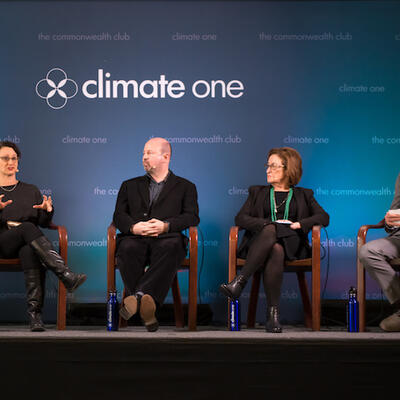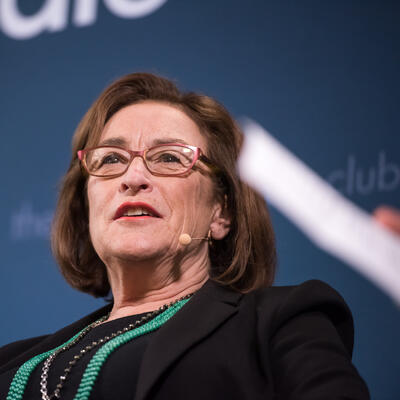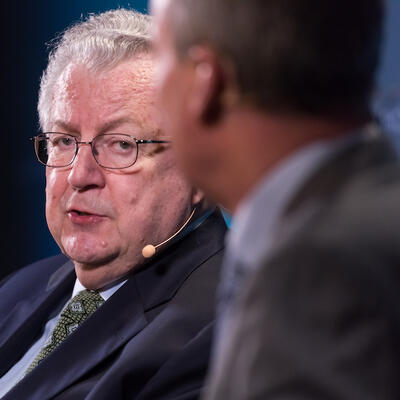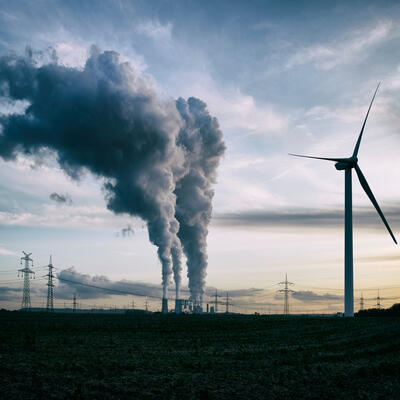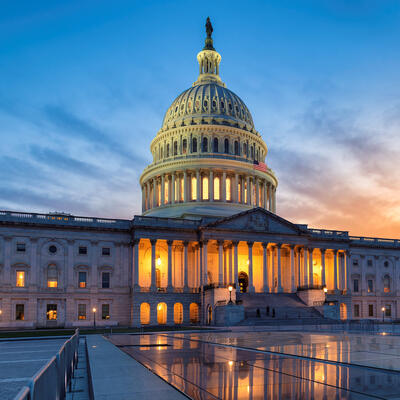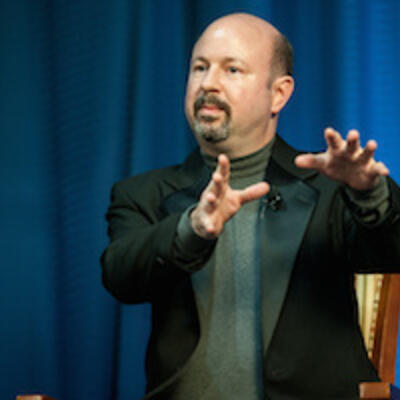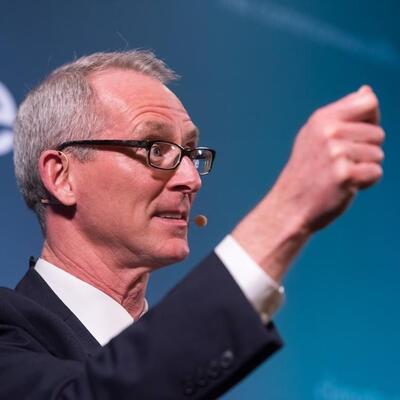
C1 Revue: Republican Renegades on Climate
Guests
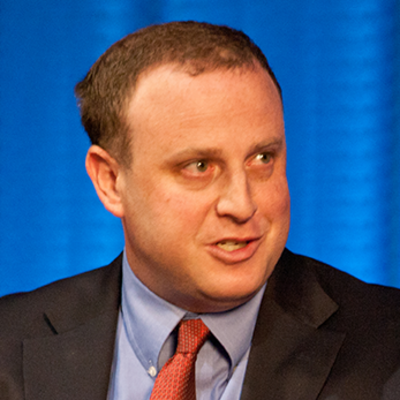
Jeremy Carl
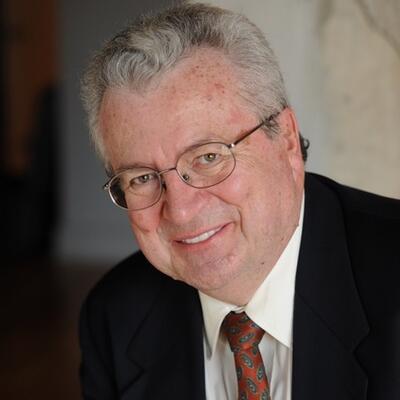
John Hofmeister
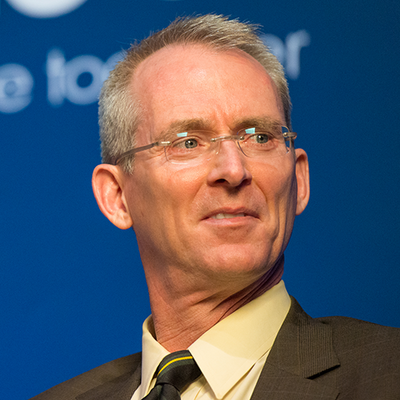
Bob Inglis
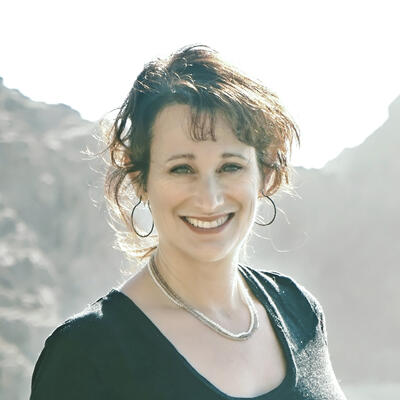
Renee Lertzman
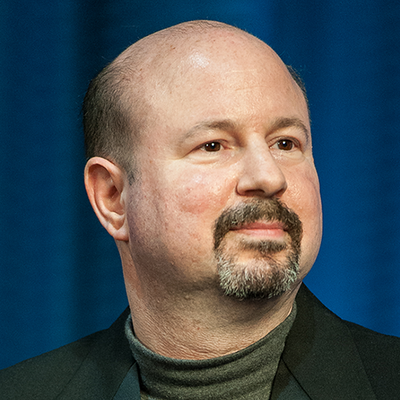
Michael Mann
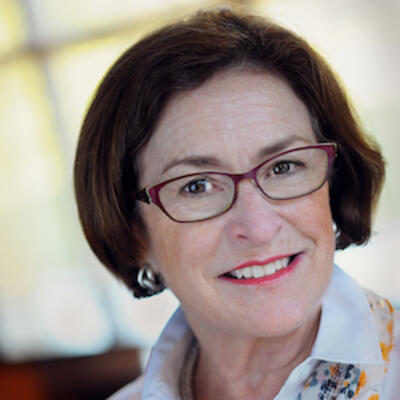
Cristine Russell
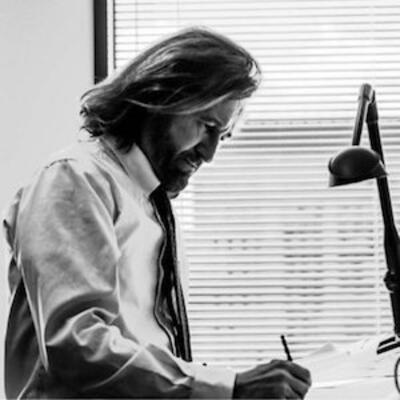
Tom Toles
Summary
The Trump administration has moved quickly to reverse some of the previous administration’s energy and climate policies. But not all Republicans are on the same page when it comes to climate. Those on the so-called eco-right say action is needed to promote clean energy and prevent climate disruption. On today’s program we hear how Republican renegades find climate solutions in conservative principles, and what we can do when climate denial isn’t just present in the halls of government, but actually, controls the levers of power.
Jeremy Carl, Research Fellow, Hoover Institution, Stanford University
John Hofmeister, Former President, Shell Oil Company
Bob Inglis, Former Republican U.S. Representative, South Carolina
Renee Lertzman, Climate Engagement Strategist, Author and Speaker
Michael Mann, Distinguished Professor of Meteorology, Penn State University
Cristine Russell, Freelance Science Journalist
Tom Toles, Editorial Cartoonist, The Washington Post
Full Transcript
Announcer: This is Climate One, a conversation about powering America’s future.
The Trump administration has given climate denial its bigger platform ever.
Tom Toles: We have in this last election crossed over into an extraordinarily hazardous moment where all the gains are at risk.
Announcer: But ten years ago, mounting scientific evidence was nudging Republicans and Democrats to recognize climate as a concern.
Bob Inglis: My son came to me in ‘04 and said, “Dad, I’ll vote for you. But you’re gonna clean up your act on the environment.”
Announcer: That can happen based on conservative principles
Casey Lucious: I think one of the core tenets of the Republican Party is control at the local level. So when we’re talking about energy alternatives, we don't need federal energy initiatives.
Announcer: Republican Renegades on Climate. Up next on Climate One.
Announcer: Climate One is changing the conversation about America’s energy, economy and environment. I’m Devon Strolovitch. Climate One conversations – with oil companies and environmentalists, Republicans and Democrats – are recorded before a live audience and hosted by Greg Dalton.
Moments after President Trump was inaugurated, the White House website removed all references to climate change. Days later, the President signed executive orders to approve the Keystone XL and Dakota Access Pipelines. Republicans are also moving to open up oil drilling in the Arctic National Wildlife Reserve. These moves are all in line with Trump’s campaign promises, so no surprises. But not all Republicans are on the same page as the new administration when it comes to climate. Those on the so-called eco-right say action is needed to promote clean energy and prevent climate disruption. So how do these Republican renegades find climate solutions in conservative principles?
Joining Greg today are three of those renegades. Jeremy Carl is a research fellow at the Hoover Institution. During the 2016 presidential campaign he met with Florida Governor Jeb Bush, Senators Ted Cruz and Rand Paul, Ben Carson and Wisconsin Governor Scott Walker. John Hofmeister is former president of Shell Oil Company. He’s currently chairman of Erin Energy, an oil and gas exploration company active in Africa. John is also a Climate One advisor and supporter. Bob Inglis is a former Republican congressman from South Carolina. He lost a primary election after he spoke up in favor of accepting climate science. He now heads the nonprofit organization republicEn, with an EN, dot org, which organizes conservatives interested in environmental conservation.
Here's Greg talking about Republican strategies for dealing with climate change.
Greg Dalton: Bob Inglis. Let's begin in 2004. Your son is 18. You think Al Gore is cuckoo and your 18-year-old son comes to you and says, “Hey dad.”
Bob Inglis: Yes, he was leading a new constituency. His mother agreed, his four sisters agreed. They could change the locks on the doors. It's a very important constituency to respond to. So, all politics is local. And so, yeah, Greg that was the first of a three-step metamorphosis what my son told me. You know, for six years I was in Congress they said climate change we hadn’t known anything about it except that Al Gore was for it. And since I represented the reddest district and the reddest state in the nation, that was sufficient. Then I was out six years during commercial real estate law again in Greenville, South Carolina. I ran for Congress after Jim DeMint left the seat to go to the Senate. My son came to me in ‘04 and said, “Dad, I’ll vote for you. But you’re gonna clean up your act on the environment.” And so, the second step in the metamorphosis is going to the Antarctic, Seeing the evidence in the ice core drilling. Third step was really something of a spiritual awakening. Another science committee trip, Great Barrier Reef, Aussie climate scientists showing us coral bleaching. I could tell we shared a worldview, you know, St. Francis of Assisi said “preach the gospel at all times. If necessary, use words.” Scott was preaching the gospel, I could see it in his eyes, hear it in his voice. And later, he told me about conservation changes is making his life, you know, to love God and love people. And I got right inspired, wanted to be like Scott loving God, loving people. And came home and introduced Raise Wages, Cut Carbon Act of 2009. Probably not a good idea to introduce a carbon tax in the midst of the great recession, in the reddest district, in the reddest state in the nation.
Greg Dalton: So you were then lost the tea party primary, is that right? Lost to a tea party candidate?
Bob Inglis: Oh yeah, there is that. Yeah, I was trying to avoid the unpleasantness of late. But, yeah, in 2010, there’s this guy named Trey Gowdy who got 71% of the vote in a Republican primary. And I got the other 29% in a Republican runoff after 12 years in Congress, which is a rather spectacular face plant though, in that fourth District of South Carolina.
Greg Dalton: John Hofmeister, I believe it was in late 1990s. Scientists had just concluded that human activity was warming the atmosphere. Saudi Arabia, Venezuela had signed onto this international climate science report. And the industry responded by forming the Global Climate Coalition. Took a page from the tobacco playbook, oil companies were part of this to push back. You were at Shell Oil at that time. What did you do about that group?
John Hofmeister: I was actually at the parent headquarters in The Hague. And I had a global position. And we saw that Shell Oil had joined this group, Global Climate Coalition. And we researched it to find a little bit about what it was doing. Always worried about what our subsidiary in the U.S. was up to because sometimes the U.S. subsidiary was not exactly aligned with the global headquarters. And so as we dug into it, we found indeed this looked like a fishy organization that seemed to promote one thing but actually did another. And that is they seemed to be interested superficially in effects on climate. But in fact they were working to defeat any legislative effort to do anything that might amend how businesses practiced and how industry operates. So we fundamentally called up my boss and I, the CEO and I, called up the president of Shell Oil Company. And said, You know what? “You belong to that organization tomorrow you're out of a job.” You may be the president of Shell Oil today, but you won't be tomorrow. Because we will not have our corporate name associated with such a group.” Well, he called and quit the group that night. Because it was a phony group and we weren’t gonna be part of it. That was one of the reasons I joined Shell. I joined Shell in ’97. And I joined to help transform the company and to the extent that I could the industry. So that it could really adapt and change to what Rio stood for, to what Kyoto stood for and subsequent to what Paris stood for last year, the year before last.
Greg Dalton: Before we go to Jeremy Carl, I want to roll this clip of the economist and conservative icon Milton Friedman way back on the Phil Donahue Show in 1979.
Milton Friedman: So there's more of a case for example for the emission control than there is for airbags. But the question is what’s the best way to do it? And the best way to do it is not to have bureaucrats in Washington write rules and regulations saying that a car has to carry this, that, or the other. The best way to do it is to impose a tax on the amount of pollutants emitted by a car and make it in the self-interest of the car manufacturers and of the consumers to keep down the amount of pollution in that way.
Greg Dalton: That's the economist Milton Friedman. Jeremy Carl, he's an icon of free-market principles in the United States. You’re at a free market institution. What do you think about his case for taxing carbon pollution because it harms other people? He’s saying that you couldn't put – government shouldn’t require airbags because it’s, you know, it’s up to you if you wanna hurt yourself. But you hurt other people, the government should intervene.
Jeremy Carl: Well I think the ultimate question and I've written a lot, both for academic and popular literature on this issue. You know, I think one has to distinguish the theory from the practice. And in theory, there could be a lot to be said for particularly if you're cutting it with offsetting taxes elsewhere. So it's not about growing government or creating a physical drag having carbon tax. But the practical details I think frankly are still a huge hold up. We saw this in Washington State, actually a friend of mine Yoram Bauman who's actually quite liberal Democrat was promoting this revenue neutral carbon tax in Washington. And it failed because environmentalists opposition. And I think that shows some of the practical difficulties. And some of the reasons why conservatives and I include myself here are certainly I think practically a little bit skeptical of where this would go. If we’re doing this, is it on top of a bunch of other rules and regulations that we've already got or are we getting rid of a bunch of subsidies? Are we getting rid of a bunch of rules, regulations, and just saying, hey like Milton Friedman says “the best thing is to price.” If it were the latter, I think it would potentially have some significant appeal. My concern is in the practical sense. We don't wind up in that position. And I think one of my more skeptical friends in this world is actually helping the Trump transition team on energy and I won’t name him, but he sort of said the problem with even saying if you're on the right, I'm for a carbon tax if or but is immediately everybody on the left ignores everything you're saying after that. And they say, oh, you’re for carbon tax, well then, you know, if you won't do it in this situation, then you’re Satan or something like that. And I think the concern is what goes after that if or but makes a big difference. And I'm skeptical that we’re at a place right now, politically with the left and right where we could get to a deal that would be agreeable to both parties.
Greg Dalton: John Hofmeister, you were part of a project that really redefined the politics of energy in this country. In 2007, 2008 there was U.S. climate action partnership was for cap and trade. It was some of the biggest corporations in the country. You brought in Shell Oil, Conoco came in, BP, Chevron and Exxon stayed out. But it was industry and environmental groups and they were ready to make a deal. Can we get back there?
John Hofmeister: We had the major manufacturers. U.S. Steel, GE, think of almost anybody that is a big consumer of energy and who also pollutes. And we had all the major utilities like Exelon and a few others NRG, and a few others. And we had five environmental groups. That was the most amazing fact. We had NRDC, Friends of the Earth, a number of others who were all part and parcel. We were funded by the Rockefeller Foundation to try to actually get something done. Our mission was to put a legislative framework in front of the United States Congress by 2000 and after the 2008 election. And we achieved that. We put a legislative framework in front of the U.S. Congress in January 2009. But one of the problems was symbolism around the whole effort. The Republicans call it cap and tax. They didn't take the time to understand because it was anything but. Yes, prices would rise, but those prices were because of trading systems where buyers and sellers in the public marketplace would actually fund what was required to buy and sell the credits. And it was not gonna be, it would be passed on to consumers in the sense of higher prices just like milk prices would go up or bread prices would go up or gasoline prices would go up to because of the effects of it. But it’s not particularly a tax. There’s no way you could trace it back to somebody's internal revenue form. And so it was just the Republicans were immovable on the subject. Even though the prior election, John McCain was supportive. And to John McCain's credit, he was supportive through the effort and wanted to see it win. But Harry Reid wouldn't touch the house bill in the Senate. The Senate, the house bill passed by seven votes and in the House of Representatives where there was a super-majority of Democrats that meant that some several dozen Democrats voted against it. So when it came over to the Senate, Harry Reid said, I got Senators running for the next election we’re not gonna touch this. So it died.
Greg Dalton: Jeremy Carl, your neighbor down the hall at the Hoover Institution for three years was James Mattis, now the Secretary of Defense. He famously said he led some Marines in 2003 interact and he said famously that the military need to be “unleashed from the tether of fossil fuels” that the supply chain cost Marine lives. It's a security issue. Do you agree with him on the military dimensions? Veterans are very much a core of the Republican Party. Speak to the national security aspects.
Jeremy Carl: Well, I think the military has obviously done a lot in this area in the last under the last administration. Some of it I thought was good. Some of that I thought was kind of maybe not mission-critical and kind of putting a green patina where we didn’t need to be. But I certainly agree with the general’s comment especially concerning supply lines. And you actually saw a number of good Marine deployments. The ExFOB, I'm forgetting this is an experimental forward operating base that the Marines operated that was essentially solar plus batteries that allowed you to reduce some of those supply lines and risks. And so certainly to the extent that you can decouple fuel in certain types of combat theater, you know, I think it can certainly be very helpful. I'm not sure how much that ties into the broader questions of climate change and climate risk. But I do think that certainly there are elements of national security that come into play.
Announcer: We’re hearing from climate renegades in the Republican Party at Climate One. Greg Dalton will continue his conversation in just a moment.
Announcer: Welcome back to Climate One. We’re talking to three Republican renegades on climate… Jeremy Carl, research fellow at the Hoover Institution. John Hofmeister, former president of Shell Oil Company. And Bob Inglis, former Republican congressman from South Carolina.
Here’s our host, Greg Dalton.
Greg Dalton: We’re gonna go quickly to audience questions. But I want to first roll something we have. We sent out a reporter to talk to a couple. This is a woman who ran for Congress in Monterey, hundred mile south of San Francisco. This is Casey and Bob Lucius. Casey Lucius ran for Congress last year as a Republican and she lost. Let's hear what she has to say.
Casey Lucius: I’m Casey Lucius and I recently ran for Congress in California’s 20th district. Monterey County, Santa Cruz County and San Benito County as a Republican.
Bob Lucius: And I’m Bob Lucius. I’m a retired Marine officer. I was Republican for much of my life more recently registered as an independent.
Casey Lucius: We became vegetarians now about 12 years ago. So we actually have four cats. But if it were to Bob we would have like a whole – we would have chickens –
Bob Lucius: A menagerie.
Casey Lucius: We would have a whole farm.
Bob Lucius: I think it’s about a year ago I had written an op-ed in the local newspaper Monterey Herald about the relationship between diets and climate change and greenhouse gas emissions. Subsequently in the campaign it was about five or six months later. Suddenly, it kind of rose up again and a lot of people were drawing attention to it, but not in a really positive way.
Casey Lucius: Someone in the agricultural industry locally had forwarded the op-ed to the Farm Bureau and all of the Farm Bureau members. And basically said, you know, Casey Lucius isn’t who she appears to be. She’s not really conservative. She’s not really Republican. Look at this, her husband’s an environmentalist who works for Humane Society and don't trust her. I think one of the core tenets of the Republican Party is control at the local level. So when we’re talking about energy alternatives, we don't need federal energy initiatives. We really need those things to happen at the state level and at the local level and probably most importantly at the private industry level. We need to free up private industry to be able to innovate. My hope is that people will be open-minded about Republicans but also that Republicans will be open-minded about all of these challenges that we face as a country.
Greg Dalton: That’s Casey Lucius who ran for Congress south of San Francisco as a Republican. Bob Inglis, your response to that. She’s saying, wants a party that's open and inclusive to ideas?
Bob Inglis: I think what she was describing there is the kind of accountability that is the basis of conservatism. Same thing on climate action, same thing, you know, on balancing the budget. People know about climate change. It's not that we need to educate them that much about climate change, it’d be helpful. But mostly what it is is an affinity deficit. They're not people that look like Republicans that are supporting action on climate. And so if we have more of those, I mean we’ve got to have some people, what we say at republicEn.org is we’ll sing this solo if we need to. We’ll get a little duet going maybe out on the streets. Eventually we get some brass out there on the street and a little band strikes up. At that point, politicians will run around out front to lead the parade where it's already going. Because politicians typically follow, they don't lead. And so it is important to have information and I agree with that, obviously I’m not discounting the value of science education and all of that, that's important. But even more important at this juncture is having people, having us learn from people that we trust. And all of us learn from people we trust. We don't learn from people we don't trust.
Greg Dalton: We’re gonna go to audience questions. Welcome.
Male Participant: Thank you. Most of tonight's discussion is focused on the national agenda, but I was really struck by what Casey Lucius had to say about the opportunities for doing things the local level. So I'd really appreciate hearing from all of you what strategies and tactics you would offer people who wanna work on climate solutions very, very locally whether at the county level or at this municipal level. Thanks. (01:02:06)
Greg Dalton: John Hofmeister.
John Hofmeister: I think the age of national one-size-fits-all solutions is dead in the water. I couldn't agree more. I think at a local level you're going to get pragmatism. You’re gonna get people who know what they can and cannot do. And you're going to experiment or you're going to take initiatives that may not have macro impact on the whole of society. But if you accumulate enough of the micro impact initiatives, you’re gonna make a heck of a difference over time. And I think we should be doing more of that at the municipal, the county and the state level and not count on the federal government. Because I don't think the American people right now are in a mood to take a lot of federal government control. I think that's why we got the outcome we got.
Female Participant: Hi. I’d like to thank you guys as conservatives for coming out and talking to the bluest district and the bluest state about an issue that I find incredibly important. And we need more people conservatives like you willing to talk about this. And, one of the many troubling things I find with the Trump administration has been the assault on science and on climate. And the way that there has been attacks on scientific integrity and silencing climate scientists and, for example, we saw a gag order on the EPA and the USDA Twitter accounts. And the scientists told to not speak to the media. And this is a really disturbing trend for me if we want to move forward on fact based policy. And I wanted your opinion on the best way to be able to move forward and how we can stay vigilant to continue to make policy it's moving in the right direction.
Greg Dalton: Who’d like to take that one? John Hofmeister.
John Hofmeister: I think that the activism of today is going to rival the activism of the late 60s because this issue is becoming serious and often enough people's minds. And I don't believe that the solution is at the federal government level, but I think the activists are going to take an awful lot of convincing to see the kinds of initiatives go forward that unfortunately we still need. We’re gonna have internal combustion engines in this country for the next 30, 40, 50 years. There’s just no way around that despite all the work we’re going to do on electrification. And so it’s going to be important to explain to people why you're doing what you're doing, how you’re going to go about doing it and do a whole lot of engagement with the public. If you have any hope of getting infrastructure projects through.
Greg Dalton: Back to the 60s. Let’s have our next question. Welcome.
Male Participant: Hi. I think we could probably use California and a few allied states, New York and some others to actually be the landing place for the Energy Department and some others. And we've got technologies that should be getting unleashed and create a parallel sort of a shadow economy. And I wonder if you could tell us how we could achieve that in this context successfully. If the stuff we want to do is profitable enough. Can we make a shadow economy a parallel of counterculture like in the 60s to happen?
Greg Dalton: Jeremy Carl, breakthrough technology
Jeremy Carl: Yeah, well I'm not going to endorse 60s counterculture. So I have to disappoint you there. But I will say that I've always viewed this as primarily a technical problem that needs, that you’re going to either solve it with technology or you’re not gonna solve it. And, you know, I think the notion that people are gonna have dramatic lifestyle changes for better or for worse, is just is not likely to happen. And so therefore, I do think that Silicon Valley can have potentially huge role to play. And we've seen a lot of the technologies get exaggerated in terms of how close they are to really being available in the media. I mean and then you talk to people actually implement them and it turns out they're not nearly as close as you think. But having said all that, we have made tremendous progress in the last couple decades. Certainly in particular the last decade in terms of bringing some of these technologies to market, making them more mature and I think, I'm actually optimistic that we will get around this problem. And I think that we will ultimately not solve adjust through technology, but I think that the technology is the absolutely necessary step. And I'm very optimistic we are gonna get there with respect to that step.
Announcer: You’re listening to Climate One with Greg Dalton. Greg’s been talking with Jeremy Carl, research fellow at the Hoover Institution. John Hofmeister, former president of Shell Oil Company, and current chairman of Erin Energy. And Bob Inglis, former Republican congressman from South Carolina.
Let us know what you think about these Republicans renegades – or about the program in general. Leave a comment or write a review on iTunes.
And follow us on Twitter. Our handle is @climateone.
So how can members of the same political party have such contradictory views on climate? We turn now to a conversation about climate denial – the strategies generated by our minds to deny, repress and basically avoid engaging with information that conflicts with our beliefs, worldview, or ideology. Experts say some denial is human, normal and necessary. But what happens when this normal human process prevents us from acknowledging real threats? And what can we do when climate denial isn’t just present in the halls of government, but actually controls the levers of power?
Joining Greg are a scientist, a journalist, psychologist, and an editorial cartoonist. Michael Mann is distinguished professor of Meteorology at Penn State University. He is co-author of “The Madhouse Effect: How Climate Change Denial is Threatening Our Planet, Destroying Our Politics and Driving Us Crazy.” Renee Lertzman is a writer who focuses on the psychological aspects of climate and the environment. She’s the author of “Environmental Melancholia: Psychoanalytic Dimensions of Engagement.” Cristine Russell is a veteran science journalist. Her writing has appeared in the Columbia Journalism Review, Scientific American, The Atlantic, and The Washington Post. She’s also a senior fellow at Harvard University's Kennedy School of Government. And Tom Toles is a Pulitzer Prize-winning editorial cartoonist from The Washington Post and author of the Tom Toles blog. He’s also co-author of “The Madhouse Effect.”
Here’s our conversation about climate change denial.
Greg Dalton: I wanna begin by playing a clip. We went out and found a climate denier. We figure we wouldn't have a whole lot of that perspective on stage and the audience today. So we wanted to be sure that that was heard. So we went out to a grocery store in Richmond, California and we found David Erlich. Who is a chair of the Republican County, Republican Party in Alameda County. Let's hear what David Erlich has to say.
David Erlich: My name is David Erlich. I’m from Los Angeles, California but I currently live in San Leandro. I’m an electrician by trade and I am the current chairman of the Alameda County Republican Party. Low voltage. So there’s only 12 volts going through here and it’s trapped up because the LED is only 12 volts. I’m not saying that there isn’t climate change. There is climate change, because if you go the definition of climate change, the climate has changed from this morning to this evening. It depends on what scale you wanna look at it. If we’re looking at coming out of the ice age, and now we are warming, that’s where we’re at. So that would be a natural progression. I don’t really believe there's 99% that of the sciences and what class of science. And most of meteorologists I know don't subscribe to the type of global warming that we’ve been told we’re involved in. Those are LEDs, these little ones that are put up. There are more LEDs going up. So the guys gonna spend a third less and get twice much lighting on. We need to be working on alternative energy, period. Because not just because of any damage we can do the climate, or any damage we can do to earth change the climate because it's economically right, its advancement. Really, what we’re looking at is economics because we’re looking at a financial disaster that will do us in quicker than any global warming at this point in time.
Greg Dalton: That's David Erlich, electrician who we talked to in Richmond, California. He is chair of the Alameda County Republican Party and we sent journalist Andrew Stelzer out there to talk to him. Michael Mann, how do you respond to his views which represent a lot of what we hear in the climate debate.
Michael Mann: How long do we have here? [Laughter] Well, you know, I think it's easy to vilify somebody like that. You know, it would be easy for us to laugh at, you know, some of the – with some of the ignorance that is portrayed in that segment. But to me he is an example of, you know, someone who's really a victim. He is not the enemy. He is a victim of a massive misinformation campaign that we’re fighting constantly when it comes to the science of climate change. And you can hear that in the litany of talking points because he is essentially delivering standard sort of climate change contrarian, climate change denial talking points. He got some of them mixed up, of course. So I think what's also important to understand just in the logical progression is that those talking points were really just a way to justify an ideological position. And then the and you saw were used coming from this quote that I love attributed to James Inhofe a very well-known senate climate change denier from Oklahoma and he once said something to this effect, he said, “I used to believe the science of climate change until I learned how much it would cost.” I think that statement really betrays sort of the underlying mental process that's at work and I'm sure Renée can shed some additional light on that. So I think it's important to understand that in the end this person comes out on the right side of the issue and maybe there's some internal conflict, maybe he ultimately understands that there is a problem here. He doesn't want to explicitly mention it because, you know, climate change is sort of for the tribe that he belongs to, it's ideologically inappropriate to concede that climate change is real, but in his heart he sort of knows that it is and he knows the right thing is to move in the direction of clean energy and he's actually helping in that effort.
Greg Dalton: Renee, there has been – I mean, I made the question of whether does science is even relevant. He's been installing LED lights, right? Who cares what he thinks about science, right? He is – he is installing clean energy. Science is complicated, it's abstract. Do we focus too much on the science and is it more emotional things that people respond to?
Renee Lertzman: Yeah, I mean what I'm reminded of in seeing that clip and then Mike's comment is, when we're confronted with information that brings up conflict with our beliefs, our worldview, our, you know, ideology whatever, our mind will actually generate incredible strategies to deny, repress and basically avoid our engagement with the situation and with the reality. That's just neurologically, you know, from a neuroscientific perspective that's what our minds do when conflict is introduced. Our neural networks are activated and we actually do seek out scenarios that help us stay in alignment with a worldview. And I would add that I think the reason why the messages and the discourse have efficacy and land with people is precisely because there's an incredible difficulty in coming to terms with what’s happening. So, you know, I’m also reminded in the interviews I’ve done with Republicans around climate change, hard-core skeptics, that we see exactly what we’re talking about and what Mike was mentioning is a lot of vacillation between recognition and acknowledgment. Somehow, you kind of know that they know deep down that something is up but they can’t allow themselves to go there because of my, you know, identity, affiliation, it doesn’t feel safe or acceptable to do that. Our job is to try to make it more safe, to give one another permission to actually go there.
Greg Dalton: Cristine Russell, has the media done a good job doing that?
Cristine Russell: Well, first of all, the media is a plural word and so l think – I’ve seen a number of nostalgia pieces recently, remember the good old days of Walter Cronkite where that's the way it is and I think people, particularly in this post-election period, are really realizing that again a lot of the polarization and the kind of thoughts that we were hearing in that view of the climate denier is because people are getting their information from so many different sources. And so one of our problems if you are in mainstream news media is getting people the information and people are still getting a lot of information from television, but they are also getting it from selected sources of information that reinforce what they think to start with. And so we don't have that collective wisdom and I think one of the challenges for science, for journalism, for any field is how do you get a better, more educated audience on some of these areas of science. And back to the point you made, I don't think people have to be scientists and looking at the conversation he was having as the electrician about his beliefs as if somehow he could sort out the science. And so we, I think in the news media, in mainstream journalism really have a challenge to try to reach out in a bigger pond and reach other people than just preaching to the converted. So I think we really have a challenge and I think we have a lot to cover in the coming months, that's for sure.
Music: In
Announcer: You're listening to a Climate One conversation about climate denial. Greg Dalton will be back with his guests in just a moment.
Announcer: Welcome back. Greg Dalton is talking about climate denial with Michael Mann, distinguished professor of Meteorology at Penn State University. Renee Lertzman, a writer focused on the psychological aspects of climate and the environment. Cristine Russell, veteran science journalist and senior fellow at Harvard’s Kennedy School of Government. And Tom Toles, Pulitzer Prize-winning editorial cartoonist from The Washington Post.
Here’s Greg.
Greg Dalton: I want to show you another clip in a recent episode of National Geographic's climate change program, The Years of Living Dangerously. Jack Black talks to a psychiatrist, Lise Van Susteren. Jack Black is sitting on a beach laying back and there’s a psychiatrist sitting in a chair with a pencil and a pad next to him. So here's Jack Black talking about climate change.
Jack Black: What we know is coming, is sea level rise three feet, six feet, 12 feet? What is it that keeps me from really believing or wrapping my head around these facts?
Lise Van Susteren: Here’s your premise that’s wrong. You were thinking that our brains are only rational, and they're not. Our brains are wired in part to deny unpleasant emotions. There is a part of our brain which is highly rational, analyzes data, takes in information, and then there's the emotional part of the brain. The emotional part of the brain is extremely powerful.
Jack Black: And it feels more comfortable just to shut down the scientific part of my brain and just enjoy the right now.
Greg Dalton: That’s Jack Black in Years of Living Dangerously talking to the psychiatrist Lise Van Susteren. Tom Toles, humor gets to a deeper level, perhaps get to that emotional level. So how do you approach climate change in the cartoons that you've done in the book?
Tom Toles: Well, the analogy, I mean, cartoonists think in visual terms, but the analogy is this is an asteroid coming at Earth and, you know, everybody says, oh what a fine asteroid this is someday. This is essentially the same thing. The science of the matter is very clear now. We can see that asteroid growing in the sky every day and we’re confronted with the news media that for some reason doesn't care to cover the story of the asteroid that's going to hit us, and when they do cover it, we’re gonna talk to a scientist that explains that the asteroid is the size of one that hits the earth in this place. It's going to do this amount of damage. You can measure and calculate this and now we’re gonna to an electrician who works [Laughter] who works for the Republican Party and ask him if he thinks that the asteroid is there [Laughter] or whether it's similar or different to other aster asteroids that may or may not have been there or rumors of asteroids or mythological animals. I mean, I find it – I think is an excellent place to start a discussion, but I think it's actually a little bit offensive that this electrician is given even that much time. I mean, I just hope to God that he understands how to wire a house [Laughter] better than he understands what he was saying about his understanding because it didn't even add up to anything. I mean, if you wired a house the way he was talking, the whole thing would burn down on a day. And I would say not only don't hire this guy to install your wiring, I would say also don't join any political parties that this guys is associated with. But anyway, what was the question? [Laughter]
Greg Dalton: Renee Lertzman, in all fairness, that gentleman who spoke to our reporter isn’t here to defend himself and it may get laughs but is it right to villainize people like that.
Renee Lertzman: No. I think we’re all in agreement on that point. I just want to follow on Tom’s comment about the asteroid. So the difference between an asteroid and climate change is that an asteroid is external to us and climate change we’re all living within the systems that are producing the issue and that is what makes it fundamentally a profound psychological and social quandary and dilemma because we will as humans deny and defend till the bitter end if we feel that, look, you know, this is scary, this maybe feels overwhelming. I don't want this to be true as well, so show some empathy. I mean, God knows I wish this wasn't true. But it is and that's why we all, you know, see and move on from there.
Greg Dalton: Mike Mann, I’d like to ask you about a real legitimate villain perhaps, Frederick Seitz was former president of the National Academy of Sciences, president of Rockefeller University, won many awards and you write in your book, The Madhouse Effect, is a founding figure in the art of modern-day science, denialism. So tell us how such a distinguished figure went to the dark side. (00:28:03)
Michael Mann: Yeah, you know, when people say, how is it that, you know, somebody that smart cannot get it, cannot get the science of climate change. It's not a matter of intelligence. I think we have to recognize that there are ideological issues at work and in his case, he actually ended up receiving I think something like $70 million from R.J. Reynolds Tobacco to found an institute whose primary function would be to attack the science linking tobacco and human health. And there's a famous saying attributed to Upton Sinclair, it's very difficult to get a man to understand something when his salary depends on not understanding it. And so I think we have to recognize that there is denialism that comes from exactly the place that Renee is describing. Some of it comes from, you know, a self-interested sort of origin as well and I think in some sense that's the more challenging a denialism to access and may be convert and turn around because it's so self-interested in it’s so tied to ideology. I don't think any amount of information was going to convince the president, a former president of the National Academy of Sciences that he was wrong about this science. I think he was absolutely convinced that he was right and he was convinced that he was doing the right thing from a political standpoint. I think that's a harder nut to crack. I think it's a part of what we face, the fact that people like the electrician that we’re talking about, as I said before I see him as a victim of a campaign, a massive disinformation campaign, the same interests. Some of the same talking heads who are working for the tobacco industry decades ago denying the connection between tobacco and climate change are today receiving money from fossil fuel interests to undermine the public's understanding and policymakers’ understanding of the science of climate change. And that is, the same argument today is being made actually by the same lead attorney from the tobacco wars is now making the argument that Exxon Mobil, for example, may have engaged in exactly the same behavior.
Greg Dalton: Renee Lertzman, I want to ask you about the power of personal influence, personal experience and perhaps children getting to deniers as a way of changing people's minds that have not otherwise been changed by facts. (00:40:03)
Renee Lertzman: Yes there's enough evidence on research that supports the fact that when we have direct experience of issues that influences our perceptions. But we want to be very careful that we don't go too far in that end of the spectrum. So going back to the point around our psychological challenges around engaging with these issues, we do have imaginations. We do have capacity to engage with our imagination but having that direct visceral experience can support that but it's not the full story. So Kari Norgaard's work and I know Kari has been on the stage as well talking about her research in Norway. Her book, “Living in Denial” explores how people living in a village where snow is literally not there, people were still in profound denial. So even when things are right in front of us, waters are rising, homes in Calgary are being flooded. People can still absolutely be in denial of what is happening. The point that you mentioned around the influence of children is also becoming more recognized as very powerful. So one organization, the Alliance for Climate Education that I've been working with actually is focusing on supporting young people to have more effective conversations with their parents. We’re gonna be studying that doing research with some folks over at Stanford. So we’ll be able to see how the conversations that young people, especially teens are having with their parents and how that might introduce some openings. And this also relates to the point around conversation. That when we’re in social interactions with people we trust and care about, that is absolutely where we can start to see openings in, you know, the fixation on the denial.
Greg Dalton: Cris Russell.
Cristine Russell: Well now I was just gonna say, in the smoking, I covered a lot of the smoking wars and the financial influence. But also during that era, there were good studies showing that kids who had learned in school about smoking came home and did have an impact on their parents and wisely so given secondhand smoke as it turned out to be. So I think this anecdotal approach is also used in journalism quite a bit. The anecdotal lead for you tell the story of what has happened to someone. And it can go either way and perhaps one of the stronger ways to get public interest in the issue of the seriousness of the issue is to have more stories coming from places where people are being impacted. And I think one of the surprises in a way is the evidence that is happening all around us, as opposed to, you know, there’ll be more to come obviously. But I think telling more stories about how it's impacting and then bringing the science in to explain how that might be related or the precursor in such has always been an effective way I think giving people. And it doesn't happen in journalism. It's always a challenge as a science journalist figure out how to get the science out in the kind of easy dose and not cough medicine so.
Greg Dalton: We did a poll on Twitter. We had 850 votes and we asked the question, “What do you think about human caused climate change?” 61% said it's real and will impact me. 11% said it's real and won't impact me. 12% said it's natural and 16% said it's a hoax. So I want to get to this it really won’t impact me because, Renee Lertzman, that’s a form of climate denial, light. We’re talking here about denial which is it's not happening and we hear about that. But there's another thing which is it's happening but it's gonna hurt people far away, or polar bears or people on Pacific Islands. It’s not gonna affect me on a hill somewhere where I’ll be safe from sea level rise.
Michael Mann: I call this the kinder, gentler, climate change deniers.
Renee Lertzman: Yeah, exactly. Yeah, Mike’s written about kind of these variations as well. So there's some nice research out there around these variations. You can think of it as rationalization, distanciation where you’re actually putting space or distance between yourself and the issue. These are all very well known documented strategies that we engage in that as you say are not cut-and-dry denial. There's also disavowal where you’re not denying something exist but you're choosing to not actually live in that awareness. You're choosing to go on business as usual. It’s not the same as saying it doesn’t exist. So these again are sort of well known well crafted strategies. And as Kari Norgaard has written about and Mike in your book, that we need one another to actually cooperate to make it real. So it’s not just me as an individual going around having this thought. I need people in my life and I need social interactions who can mirror and reflect that back.
Greg Dalton: I wanna ask Tom Toles about one of his cartoons it’s in the book “Madhouse Effect” in The Washington Post. It’s a villain in court testifying. It’s this big, ugly monster and he’s in court. And he says, “Maybe that storm was one of mine, maybe it wasn't. You can't prove a thing, so you'll just have to let me go.”
Tom Toles: Yeah, I mean one of the games there have been many games played in the debate over climate change. And one of the games that the denial community has played is they take a fact from the science side that you cannot specifically attribute any one event to climate change. It could've been naturally it could've happened anyway, which is true, and it just a cynical game of tango footing your opposition with their own honesty. So they always deploy that against the news media, and I've dealt with this in my cartoons. Because as a cartoonist, I’m trying to convey visually and viscerally what climate change will be like. And you see a freak storm, a catastrophic flood, a fire, you want to take all those visuals and deploy those and say okay, maybe even if this one wasn't connected to, can’t be proven to be connected to climate change data. This is what the future is going to be like. But it's, you have to do that, that maneuver that even if then also kind of thing which is, it’s a trickier argument to make. So the cartoon was directed at explaining the specific tactic of trying to split those two things apart. I just, before the conversation gets away from this and I know I'm stepping outside the question you’ve asked. I think a lot of the progress that we've been making both in terms of public education, both in terms of international policy, national policy under the Obama administration. We have in this last election crossed over into an extraordinarily hazardous moment where all the gains are at risk. I don't think they’re lost. But politically this is an extraordinarily hazardous time that we don’t even realize we are out of screwing around time. You've got to solve the psychological problem to solve the political problem. But the political problem has just leapt way ahead of the psychology here. We are right at the edge of the precipice right now and we’re teetering.
Greg Dalton: Renee Lertzman, Tom Toles painted a very dark picture. What do people do with that fear that sort of a dark is that mobilizing place? People know that but they don't know what to do with it or where to go with it.
Renee Lertzman: Exactly. I mean it’s terrifying, paralyzing, potentially paralyzing place. Trauma does tend to fight, flight or freeze us. But we have to be exceptionally mindful of the context in which we’re learning and taking in the information. So we’re on our own and we’re isolated and we’re de aling with all of this, of course, it's overwhelming and of course it is paralyzing potentially. But when we look at the context of being with others and being able to process what we're learning, things rapidly change. We actually as humans have incredible capacity to become very creative, have ingenuity. But we need to think about the context in which we’re coming to terms with the issues.
Greg Dalton: Greg Dalton has been talking about climate denial with Renee Lertzman, an author and speaker who focuses on the psychological aspects of climate in the environment. Tom Toles, Pulitzer Prize winning editorial cartoonist from The Washington Post. Cristine Russell, veteran science journalist. And
Michael Mann, distinguished professor of Meteorology at Penn State University.
To hear all our Climate One conversations, subscribe to our free podcast at our website: climate-one.org, where you’ll also find photos, video clips and more.
Please join us next time for another Climate One discussion about powering America’s future.
[Applause]
Greg Dalton: Climate One is the sustainability initiative at The Commonwealth Club of California. Greg Dalton is our Executive Producer and Host. Jane Ann Chien [[Chen]] is the producer. Kelli Pennington directs our audience engagement. The audio engineer is William Blum [[BLOOM]]. I’m Devon Strolovitch, the editor. The Commonwealth Club CEO is Dr. Gloria Duffy.
Climate One is presented in association with KQED Public Radio.
